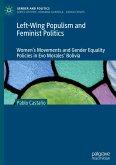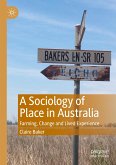This book revisits Rabindranath Tagore's opinion and standpoints on constituent elements of politics from the stance of this marker--axiology, so that many well-known aspects of his thought may be seen in a different light. Among the Indian luminaries of the first half of the twentieth century, who were well-known both in the East and the West, Rabindranath Tagore (1861-1941) was arguably the most 'gifted' personality. Besides being the first non-European recipient of the Nobel Prize for Literature (1913) and the 'ambassador' of Indian culture to the West, he also wrote voluminous essays and letters on socio-political issues--engaged himself in various protests against the raj, as a pacifist in international arena and also as a polemical writer. Tagore is often described as the 'conscience' of the Indian nation.
This book includes a long Tagore-Einstein conversation and a longish dialogue with H G Wells and his creative writings--poems, fictions, plays, and 'personal' letters--along with his direct political discourses to understand his Political Thought in a more comprehensive way.
This book includes a long Tagore-Einstein conversation and a longish dialogue with H G Wells and his creative writings--poems, fictions, plays, and 'personal' letters--along with his direct political discourses to understand his Political Thought in a more comprehensive way.








